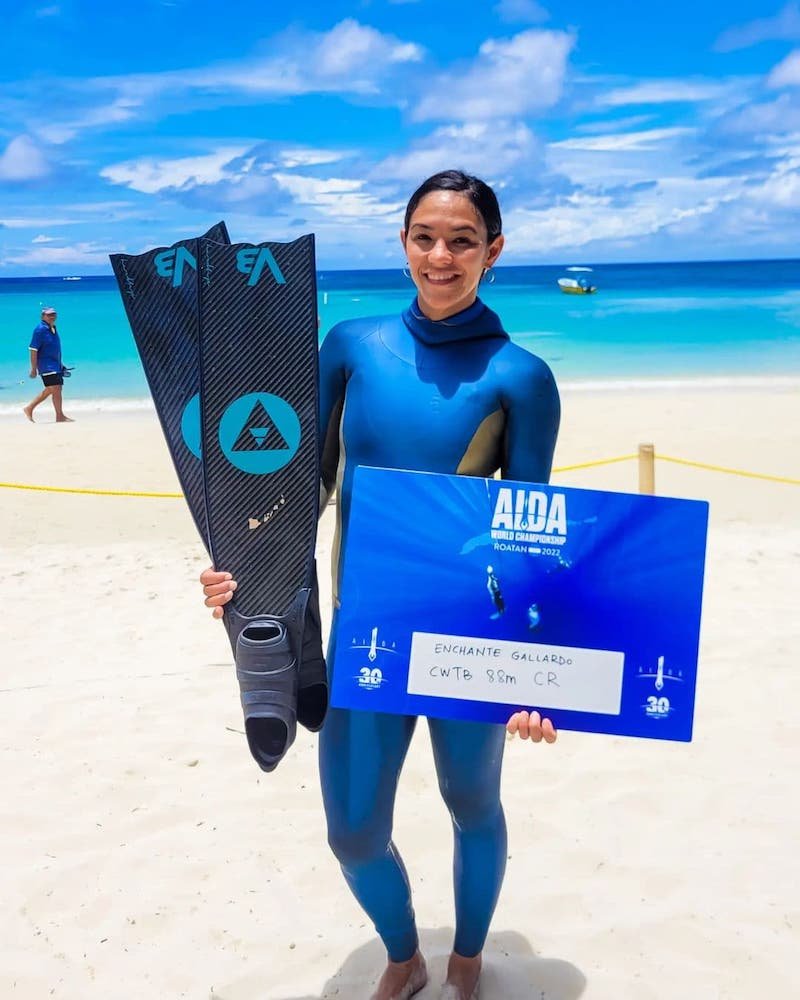Considering the breath holds, we want to focus on being as relaxed as possible, lowering our heart rate. Because if you think about it, the lower our heart rate is, the less oxygen we're burning, and then the less CO2 we're creating, and therefore that allows us to have a longer breath hold. When we're doing our breathe up, for example, we also call it ventilation, our main focus is to get our heart rate as low as possible, and get as relaxed as possible - it's all about relaxation. I mean, the main breathing technique for freediving would be slow deep diaphragmatic breathing. You're breathing through your diaphragm, and the reason that we want to breathe with our diaphragm is because two-thirds of our blood vessels and capillaries are located in that lower one-third part of our lungs, so that's where the most efficient gas exchange is going to take place. Αnd you might think that you want to fill your lungs you know, use your diaphragm, your intercostals, but it's not about the volume of air that you get into your lungs, it's about where that air is going to get the most oxygen absorbed, and then the co2 expelled.

So, you want to safely decrease those levels of carbon dioxide and what this does is it also lowers your heart rate. Because what happens is, when you inhale, you're gonna do a regular inhale, for about two to three seconds, without restriction to the airflow, and then after your inhale you would do a one-second pause. And the reason that you do that pause is to also relax the respiratory muscles because holding tension in your respiratory muscles burns more oxygen. And then you're going to have an elongated exhale, so you would want to count to 8 to 10 seconds, but you don't want it to be forced, it has to be a passive process. To make it a passive process you would create a restriction to your airflow, by pursing your lips or pressing your tongue against the hard palate, creating this valve, so that valve will create a little bit of resistance, allowing you to elongate that exhale. The longer your exhale is, the lower that will lower your heart rate a lot more.

If you think about it like if you're looking at a graph type of thing, when you inhale your heart rate will go up a little and then as you exhale it's going to go down. And there's actually been some research on trained freedivers which showed that by following this breathing pattern they've been able to lower their heart rate to about resting heart rate levels, which are the same levels when you're sleeping. So this type of breathing allows for efficient gas exchange, with minimum effort, because breathing with your diaphragm again allows for the most oxygen to be absorbed, with CO2 expelled. It lowers your heart rate, so the lower your heart rate is, the less oxygen you're consuming, so that's providing you with more oxygen for your dive, and then also it allows you to be more relaxed. And the more relaxed you are, your oxygen consumption decreases and your dives actually become more enjoyable.